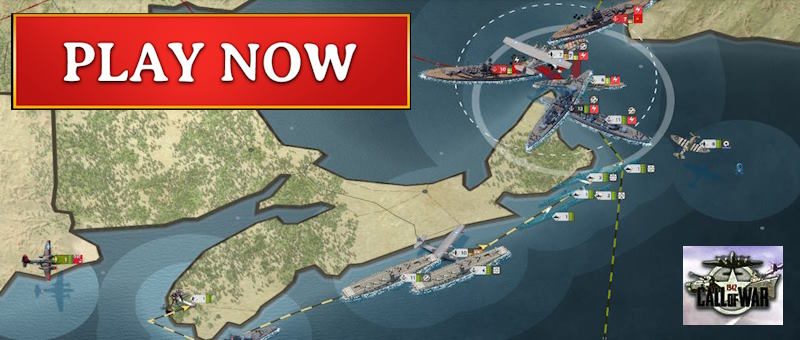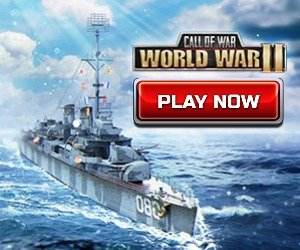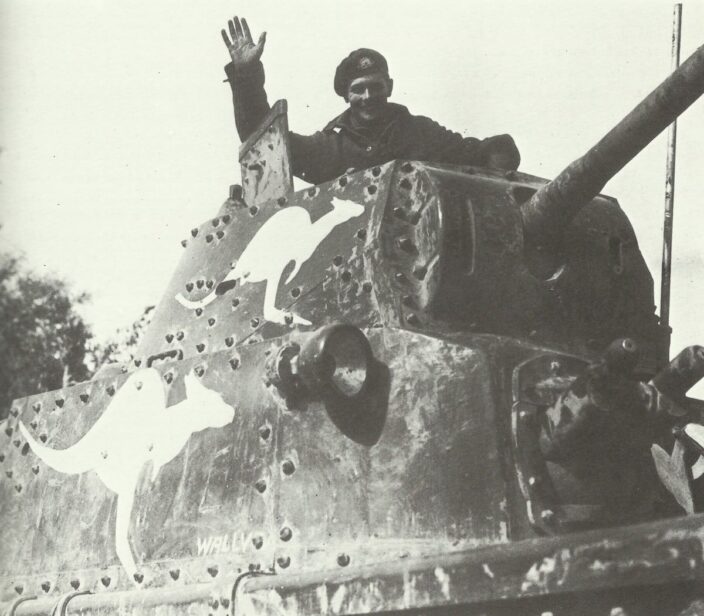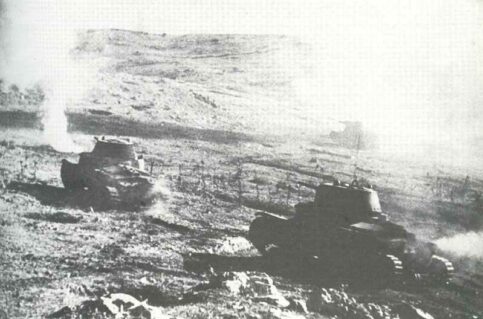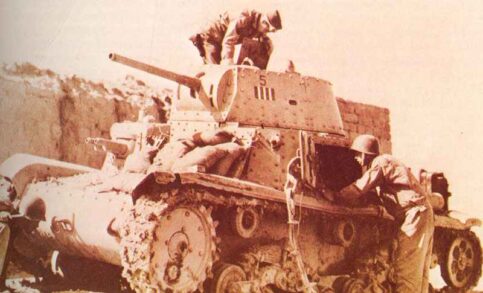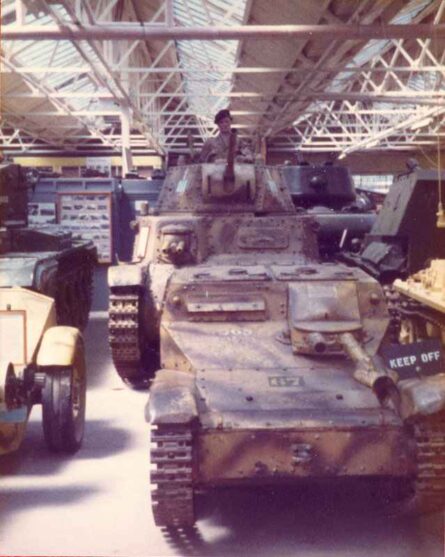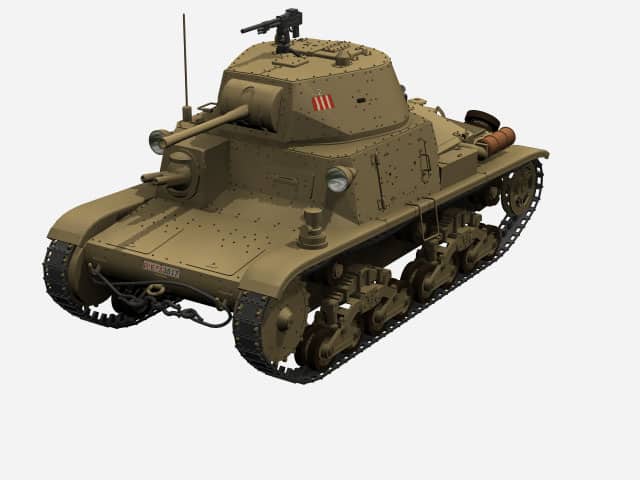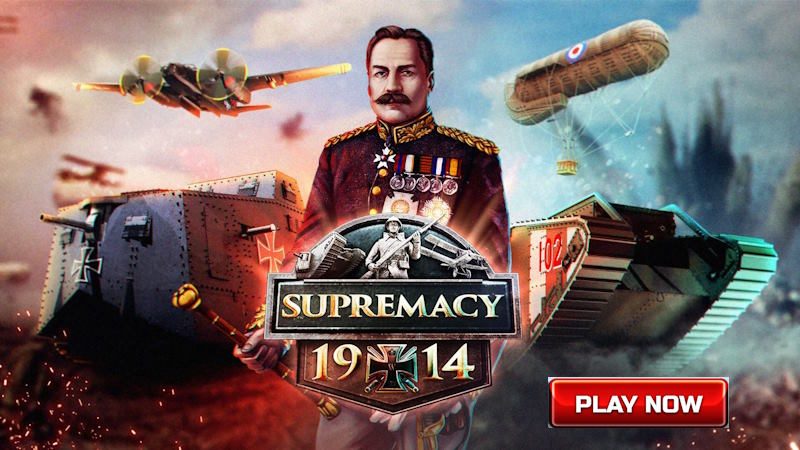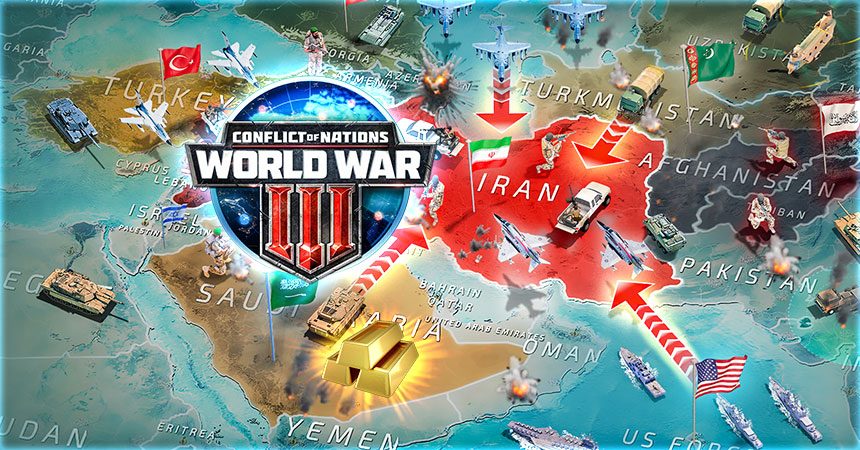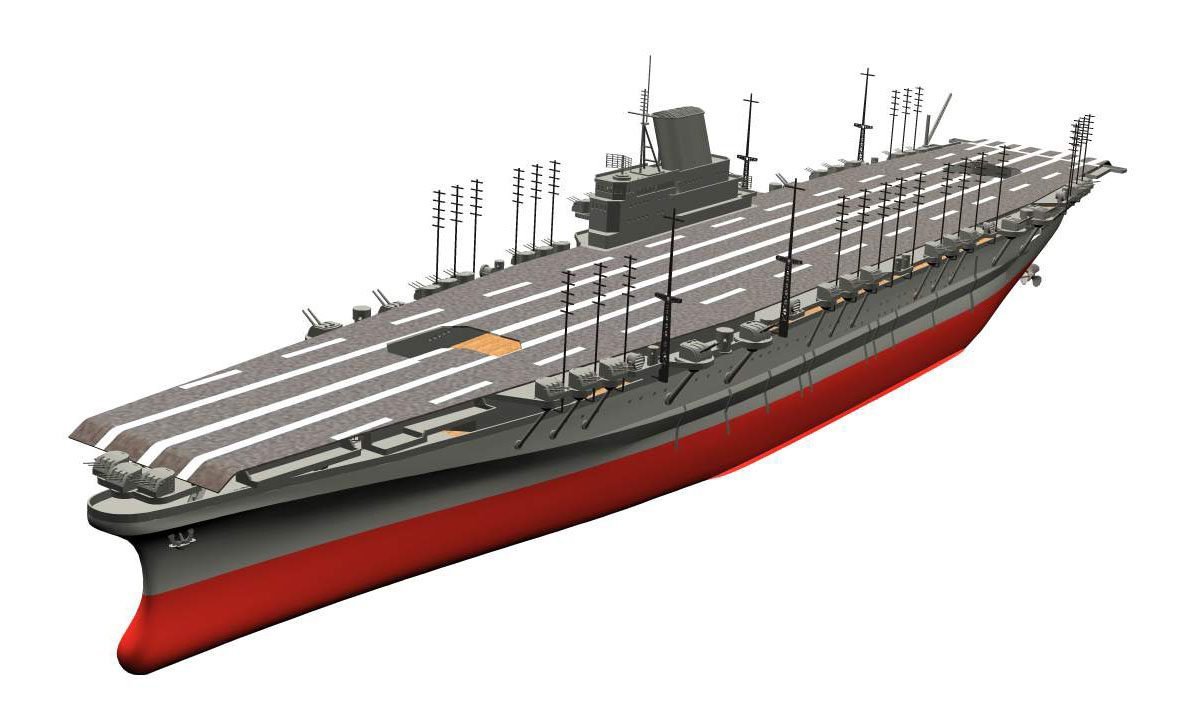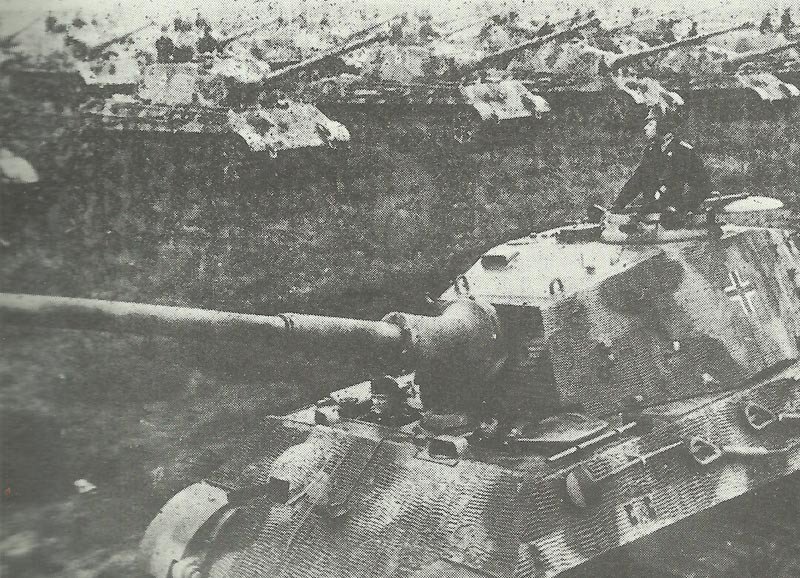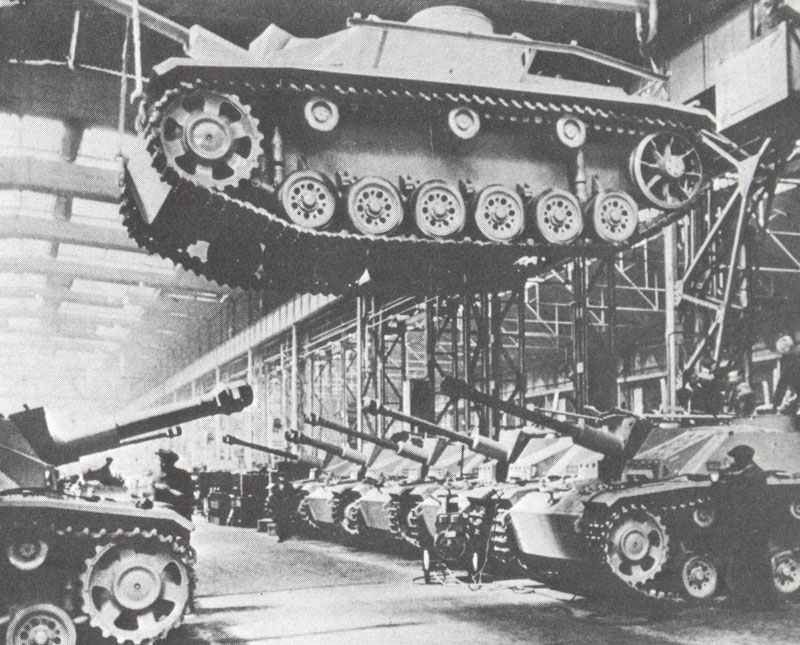Italian medium tanks Carro Armato M14/41 and M13/40.
History, development, service, specifications, statistics, pictures and 3D model.
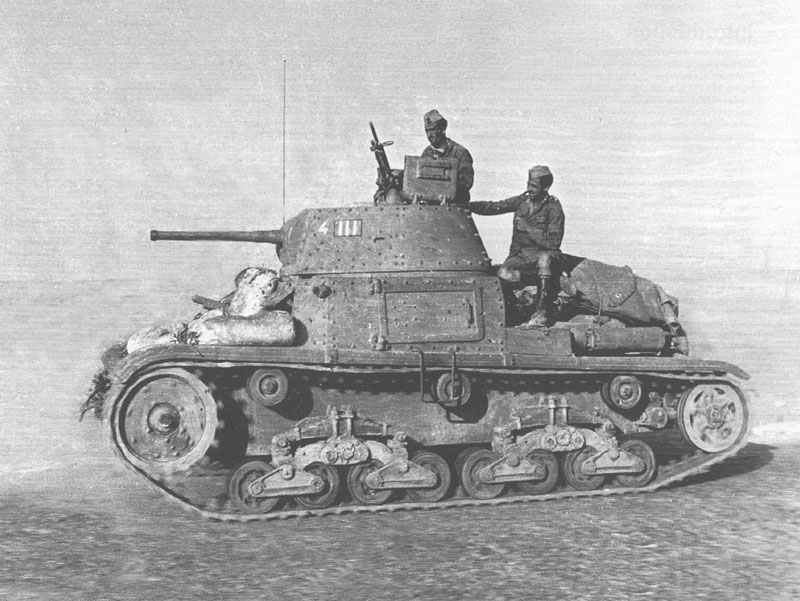
Italian tanks Carro Armato M14/41 and M13/40
Table of Contents
Carro Armato M14/41, M13/40
Type: Italian medium tanks.
The Carro Armato M13/40 and M14/41 were Italian medium tanks used during World War II. These tanks were designed to replace the earlier and less effective M11/39 tank.
The M13/40 was the earlier model, entering service in 1940, while the M14/41 was a slightly improved version introduced in 1941.
Overview
The M13/40 featured a 47 mm main gun and two 8 mm machine guns, one in the hull and one in the turret. It had a crew of four and was powered by a Fiat V8 diesel engine, which gave it a top speed of around 20 mph (32 km/h). However, it was relatively lightly armored compared to its contemporaries and had limited cross-country mobility.
The M14/41 incorporated some improvements over the M13/40, including a more powerful engine and thicker armor. It also had a slightly larger turret to accommodate a radio. However, it still suffered from many of the same shortcomings as its predecessor, such as thin armor and mechanical unreliability.
Both tanks were used extensively by the Italian Army in North Africa, where they faced off against British and Commonwealth forces. They were later also used by other Axis powers, such as Germany, where they were used in secondary roles due to their limitations. Despite their drawbacks, the M13/40 and M14/41 played a significant role in the early stages of the war in North Africa before being gradually replaced by more modern designs.
Carro Armato M13/40:
Weight: 13.5 tons
Crew: 4 (commander, gunner, loader, driver)
Main armament: 47 mm Cannone da 47/32 M35 gun
Secondary armament: 2-4 × 8 mm machine guns
Armor: 30-42 mm
Engine: SPA 8T V-8 diesel, 125 hp
Speed: 20 mph (32 km/h) on roads
Carro Armato M14/41:
Weight: 14.5 tons
Crew: 4 (commander, gunner, loader, driver)
Main armament: 47 mm Cannone da 47/40 M38 gun
Secondary armament: 2-4 × 8 mm machine guns
Armor: 30-50 mm
Engine: SPA 15T V-8 diesel, 145 hp
Speed: 20 mph (33 km/h) on roads
The main difference between the M13/40 and the M14/41 was the improved 47 mm gun on the M14/41, which had better penetration capabilities. Both tanks saw extensive service with the Italian Army in North Africa and on the Eastern Front during World War II. However, they were outclassed by most Allied tanks, such as the British Crusader and the American M3 Stuart. Despite their limitations, the M13/40 and M14/41 were the most numerous Italian tanks produced during the war.
History
The Carro Armato M13/40 had been the successor of the M11/39 (just 100 built) and it was required for the Italian army in January 1940, and it was operating from September 1940 in North Africa.
The M13/40 which in fact had an identical chassis similar to the M11/39 however a remodeled hull of riveted design ranging in thickness from 6 mm (0.24 in) to 42 mm (1.65 in). The driver had been placed at the front of the hull on the left, with the machine-gunner to his right; the second handled the dual Modello 38 8-mm (0.315-in) MG’s plus the radios. The 2-man turret was at the center of the hull, employing the commander/gunner on the right and the loader on the left side, along with a two-piece hatch protection within the turret roof. Main armament made of a 47-mm 32-calibre gun with an elevation of + 20° and a depression of -10°; turret traverse was 360°.
A Modello 38 8-mm (0.315-in) machine-gun had been installed co-axial with the main gun along with an identical weapon was placed on the turret roof for anti-aircraft defense. Totals of 104 rounds of 47-mm and 3,048 rounds of 8-mm (0.315-in) ammunition had been held. The power plant was at the rear of the hull, its power being transmitted to the gearbox at the front of the hull using a propeller shaft. Suspension on every side was made up of 4 double-wheel articulated bogies attached to a pair of devices every one carried on semi-elliptic leaf springs, with the idler at the rear; there were three track-return rollers.
The M13/40 had been manufactured by Ansaldo-Fossati at the amount of approximately Sixty to Seventy tanks monthly, as many as 799 being manufactured. The Carro Armato M13/40 had been widespread action in the Western Desert by the Italian army but was cramped, turned out to be pretty unreliable operating, and it was vulnerable to take fire whenever hit by anti-tank shells.
Numerous tanks had been taken by the British military right after being left behind by their crews and afterwards supplied to the British 6th Royal Tank Regiment (RTR) and the Australian 6th Cavalry Regiment at the beginning of 1941 while tanks had been in a really limited availability within the Allied units. The Australian regiment had 3 squadrons of taken tanks which they named Dingo, Rabbit, and Wombat. In order that they weren’t attacked by Allied soldiers, white kangaroos were displayed on the sides, glacis as well as turret rear.
The Carro Armato M14/41 was basically the M13/40 equipped with a stronger diesel-powered power plant which was backed up with air filters developed to deal with the tough circumstances of the desert.
Manufacturing came to 1,103 of these tanks, which had a comparable specification to the M13/40 besides a rise in speed to 33 km/h (ca. 21 mph) as well as in weight to 14.5 tonnes.
Users: Italy, Germany (22 M13/40 and one M14/41 captured after the Italian surrender).
Animated 3D model Carro Armato M13/40
Specifications for Carro Armato M13/40
Specifications:
Carro Armato M13/40 | Specification |
|---|---|
Type | medium tank |
Engine | SPA 8 TM40 V-8 diesel with 125 hp at 1,800 rpm |
Gearbox | 4 forward, 1 reverse |
Crew total | 4 |
Turret crew | 2 (Commander is additional gunner) |
Length | 16 ft 2 in (4.92 m) |
Width | 7 ft 3 in (2.23 m) |
Height | 7 ft 10 in (2.39 m) |
Weight | 14.3 tons |
Maximum speed | 20 mph (32 km/hr) |
Cross-country speed | ? |
Fuel consumption per 100 miles | c. 70 liter |
Fuel | 180 liter |
Road radius | 125 miles (200 km) |
Cross-country radius | ? |
Vertical obstacle | 2 ft 8 in (0.80 m) |
Trench crossing | 6 ft 11 in (2.10 m) |
Fording depth | 3 ft 3 in (1.00 m) |
Turning circle | ? |
Gradient | 70 ° |
Armor:
Carro Armato M13/40 | mm | angle |
|---|---|---|
Turret front | 37 | 16 ° |
Turret side | 25 | 22 ° |
Turret rear | 25 | 22 ° |
Turret top | 14 | 85 ° |
Superstructure front | 30 | 11 ° |
Superstructure side | 25 | 90 ° |
Superstructure rear | 14 | 90 ° |
Superstructure top | 14 | 90° |
Hull front | 30 | round |
Hull side | 25 | 0 ° |
Hull rear | 25 | 20 ° |
Hull bottom | 6 | 90 ° |
Gun mantlet | 37 | round |
Armament and Equipment:
Carro Armato M13/40 | Specification |
|---|---|
Main armament | 4.7cm Ansaldo 47/32 gun |
Rounds | 104 |
Traverse | 360° (by hand) |
Elevation | -15° to +25° |
Max effective range | HE 3,800 yds; AP 1,100 yds |
Secondary armament | 1 x 8mm Breda Model 38 machine gun with 120 rounds coaxially to gun; 1 x 8mm Breda Model 38 machine gun wit 120 rounds on turret roof; 2 x 8mm Breda Model 38 machine guns with 2,592 rounds in the right front hull (traverse 28°left to 28 °right, elevation -15° to +23°) |
Radio | Centro Radio (only in a view vehicles) |
Telescopic sight | type unknonwn |
Penetration mm at 30° armor plates of the gun:
Range | APC |
|---|---|
100 yds | 55 mm |
500 yds | 43 mm |
1000 yds | 29 mm |
1500 yds | 23 mm |
2000 yds | - |
Muzzle velocity | 2,000 ft/s (610 m/s) |
Shell weight | 3.25 lbs (1.47 kg) |
Production:
Carro Armato | figures |
|---|---|
M13/40 | from June 1940 until end of the year and again in 1942 |
M14/41 | from mid 1941 |
M15/42 (with longer gun) | from March 1943 until Italian surrender September 1943 (last 28 manufactured 1944 under German control) |
Combat delivery | September/October 1940 in North Africa, M14/41 from late 1942 in Tunisia |
Price per tank | ? |
Total production figure | c. 2,052 (799 M13/40, 1,103 M14/41, c.150 M15/42) |
Service statistics of all Carro Armato variants:
Year | Available | Production | Losses |
|---|---|---|---|
before 1939 | - | - | - |
1939 | - | - | - |
1940 | - | 235 | ? |
1941 | ? | 376 | ? |
1942 | ? | 852 | ? |
1943 | ? | 561 | ? |
1944 | ? | 28 | ? |
1945 | 68 (1.1.) | - | ? |
Total | - | 2,052 | ? |
References and literature
Panzer und andere Kampffahrzeuge von 1916 bis heute (Christopher F. Foss, John F. Milsom, Colonel John Stafford Weeks, Captain Georffrey Tillotson, Richard M. Ogorkiewicz)
Krieg der Panzer (Piekalkiewicz)
Encyclopedia of German Tanks of World War Two (P.Chamberlain, H.L.Doyle)


